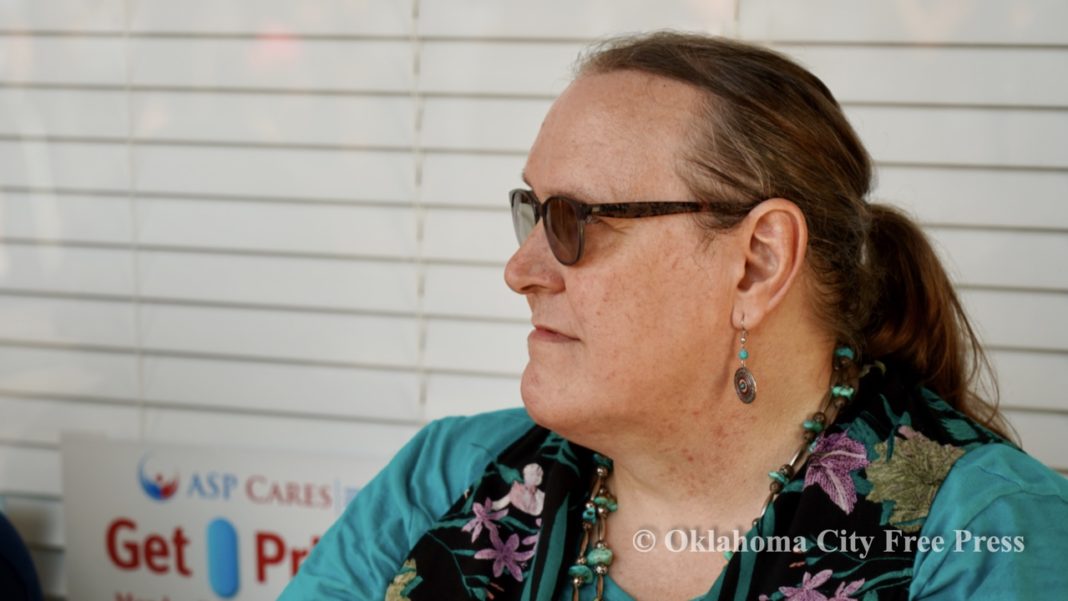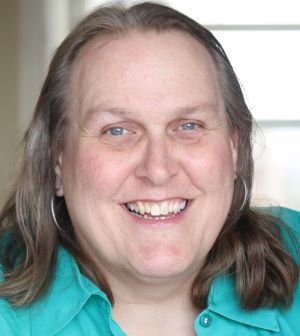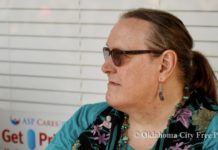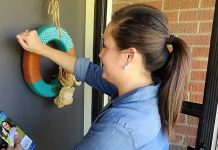Last Updated on January 5, 2024, 12:56 AM | Published: August 1, 2021
Paula Sophia Schonauer, LCSW, continues a serial memoir. If you haven’t read the earlier parts of this series, look at the bottom of this page.
“We first create in the mind, then the hands. But we stop creating if there is no heart.”
― Richie Norton
I had been in the hospital almost a month when I received a bundle of cards my classmates had made, nearly twenty of them, tied with twine and placed in a shoebox decorated with rainbows, yellow ribbons, and happy faces.
This was something I had not expected. My classmates didn’t care about me; they hated me, and had demonstrated this time and again over the previous three years. Why would they wish me well?
But here they were, a whole bunch of get well cards, many of them festooned with happy greetings, drawings of flowers, sunshine, and smiles. Some of the cards had been carefully crafted, thoughtfully drawn, and painstakingly constructed – one of them a pop-up book featuring a quaint little house, a family of four standing hand-in-hand, a tree with a tire swing. The maker had neglected to put a name on the card, but I knew the maker had to be a girl. Only a girl would care enough to make something that detailed, that thoughtful. I wished I could live in the world she had created.
Some of the cards were more rudimentary, mostly stick-figure drawings, smiley faces, crude writing, less colorful, and half-hearted. I attributed these cards to my male classmates already suppressing artistic flourishes, developing simplistic, pragmatic outlooks, viewing thoughtful expressions of goodwill as demeaning.
One of the cards was a folded piece of dark blue construction paper, nothing on the cover. The inside had a bubble-headed stick figure drawn with a black crayon on the right flap: two eyes on the face, no nose, and a half smile. The stick-figure itself had been drawn lop-sided, apparently standing on one foot, like a drunk on the verge of tripping off the page. Like many of the cards, it lacked an attribution from the creator, but I assumed it had to be the work of Michael, the pastor’s son. Of course, he would want me to topple off the edge of existence.
I did not receive a card from my teacher, Miss Miller, not even a note. Perhaps, her contribution was to set the class to work on these cards, but her lack of input was conspicuous by absence. Even Mom noticed, wondering why Miss Miller had neglected to add her “two cents.”
And Mr. Haus? Of course, he would refrain from contributing. Wellness was a sign of God’s blessing, sickness a sign of disapproval, a message to repent. I imagined his stern face, square jaw, no smile, no frown, no emotion, black eyes staring through black-rimmed spectacles. Instead of saying, “get well,” he’d say, “straighten up.”
Dad was like Mr. Haus, except dirty and smelling of sweat, wrench in hand like he wanted to bash me on the head, adjust my brain so I would have the right outlook, think the right thoughts, feel… nothing, perhaps, but anger.
Dad visited me one day, sitting across the room as I ate breakfast and watched TV, an episode of Mr. Roger’s Neighborhood. He stared at the TV for a long time, finally scoffing.
“I bet he has soft hands.”
“What?”
“Soft hands. I bet he hasn’t worked a day in his life. Not real work, anyway.”
Real work? I wondered to myself. Wasn’t making a TV show a real job?
“Real work, like turning a wrench, getting dirty, fixing things, making things with your hands.”
Dad lifted his right hand, holding it out like a stiff wave. “Put your hand on mine,” he said.
I placed my hand on his hand, the tips of my fingers barely long enough to stretch beyond his palm. His hand was rough, especially at the base of his fingers where there were raised humps discolored by dirt and scab. I poked the humps with my finger.
“Calluses,” Dad said. “That’s what you get from real work. When you get calluses, you don’t get blisters. You’re tough.”
The skin on his hand was rough and dry, like burlap, and I could see veins on his forearm, thick and dark.
“Vascularity. That’s what you get from lifting heavy things. The more blood you get to the muscles, the stronger you are.”
My hands were soft, my arms smooth and white, hairless. I wondered how much work I would have to do to get hands and arms like Dad’s. I did not want calluses and big veins. They seemed alien to me, monstrous.
The doctor with the inkblots walked into my room. “How’s it going today, young man?”
I liked his friendliness, but I did not like his questions. I felt squirmy around him, wanting to hide, scared he might tell Dad he had seen through my lies.
“I’m okay.”
“Good,” the doctor said.
Dad stood up, elongating his frame to make himself appear larger. He was taller than the doctor, looking down on him like a bull flaring his horns.
The doctor stood toe-to-toe with Dad, looking up at Dad’s face, boyish in comparison. Where Dad had tousled black hair, the doctor had combed brown hair. Dad’s eyes were green and piercing, doctor’s eyes brown and warm. Dad had whiskers burrowing out of his chin, the doctor clean-shaven. The doctor smelled better, too.
Dad extended his hand, palm down. “I’m Paul’s father.”
The doctor hesitated but grasped Dad’s hand in return. They struggled for a moment, Dad’s jaw set, muscles bulging near the back of his face where the mandibles hinged. The doctor blinked, winced, and quickly withdrew his hand. Dad smiled, dark teeth stained with coffee, cigarettes, and neglect.
“Are we getting out of here any time soon, doc?”
The doctor looked at me and smiled. “We’ve done a lot of work, but I would like to spend more time with your son.”
“Not if I have anything to say about it.”
“I understand,” the doctor said, scribbling something on a piece of paper clamped to a clipboard. “Before we discharge your son, I would like to talk to you in my office.”
The doctor left the room without another word, Dad following, but before he got beyond the doorway, he nodded to me, a triumphant smile on his face.
“You know what? The doctor has soft hands. What’s that tell you?”
My concrete operational mind puzzled this for a moment. Why was it bad to have soft hands?
Here are previous segments:
- Manhood, from the inside out — Memoir and Mythology
- Part 2 — Cubby Hole
- Part 3 — Magic Carpet Cocoons
- Part 4 — Snips and Snails and Puppy-Dogs’ Tails
- Part 5 — Mirror
- Part 6 – Deep Water
- Part 7 – Limbo
- Part 8 – Dissociation
- Part 9 – Shame
- Part 10 – Judgement Day
- Part 11 – Inferno
- Part 12 – Haunted
- Part 13 – Did I say that?
- Part 14 – The end times
- Part 15 – Alone again (naturally)
- Part 16 – Welcome to Grey Town
- Part 17 — Stigma
- Part 18 — Turning the other cheek
- Part 19 — Malingering
- Part 20 — Rorschach
Guest Columnist Paula Sophia is a licensed clinical social worker in Oklahoma City and a former Oklahoma City Police Officer.








